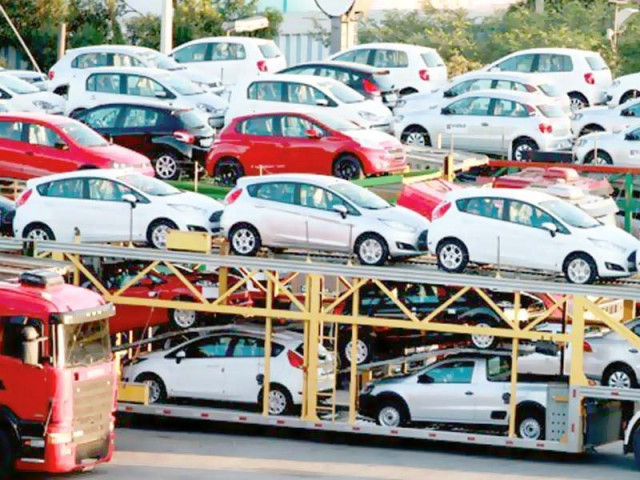Auto player opposes further government incentives
Says govt should aim for stability in auto sector, rather than offering more concessions

The five-year Automotive Industry Development Policy (AIDP) 2016-21 of Pakistan is the most successful scheme ever introduced for any industry or expansion of any segment of the industry in recent times, remarked Lucky Motor Corporation CEO Asif Rizvi.
Speaking to The Express Tribune, he urged the federal government and policymakers to ensure that no further concessions or extensions were offered in the AIDP 2021-26 for the new entrants or existing players of the auto industry.
“In addition to the new entrant policy announced in the AIDP 2016-21, the government has already announced a concessionary scheme for electric vehicles,” he pointed out.
“The government should now aim for stability in the automobile sector rather than creating a ripple effect by offering more incentives.”
He recalled that the incentives provided by the government were aimed at ending the monopoly of a few players in the automobile industry, reducing barriers to entry for new investors, increasing the choice of vehicles for consumers and enhancing the installed capacity to reduce wastage of time.
He was of the view that the government succeeded in achieving all the targets in an effective manner.
He said that owing to the incentives offered to the new entrants, the stagnation in Pakistan’s auto industry had ended and large-scale investment in car manufacturing created countless employment opportunities while consumers had a wider choice of vehicles now.
According to him, the opportunities offered to newer firms have led to the addition of over 20 new vehicle models in the local market so far.
“In addition, eight new companies have established plants and a few more may be on their way to enter Pakistan’s market,” he said. “Being the mother of all industries, any expansion in the automobile sector benefits other industries and the economy in general.”
He held the view that giving any further concessions to the new or old players would be an injustice to the companies that had invested large amounts amid a tough economic situation due to the guarantees given under the five-year new entrant policy.
“The players who have got concessions under the new entrant policy must act to increase production of vehicles and localisation of parts,” he stressed.
Highlighting the challenges faced by the new vehicle manufacturers, Rizvi mentioned the unavailability of infrastructure and different facilities such as electricity, water and gas issues, broken and absence of roads for reaching the manufacturing plants and a deteriorating security situation as major hurdles.
He lamented that the rupee depreciation by over 40% over the past two years increased the cost of capital investment for Kia plant from Rs15 billion to Rs20 billion while infrastructure and basic facilities had to be arranged by the plant itself, which resulted in a huge additional cost burden.
Rizvi said that as soon as his enterprise entered the market as a new player, the number of cars sold fell from 330,000 units in 2018 to just 125,000 units in 2020 on the back of economic downturn and the pandemic, which brought the entire sector to a complete standstill in April 2020.
“Being a resilient nation, Pakistan coped well and government’s policies, especially a steep reduction in interest rate by the State Bank of Pakistan, helped the economy recover,” he said.
He said that in order to drive car prices downward and stimulate the auto industry, the reduction in customs duty was a must.
“Government should abolish the additional customs duty and federal excise duty on cars and auto parts to reduce costs, which will raise demand, enhance tax collection and increase employment opportunities.”
Published in The Express Tribune, April 27th, 2021.
Like Business on Facebook, follow @TribuneBiz on Twitter to stay informed and join in the conversation.



















COMMENTS
Comments are moderated and generally will be posted if they are on-topic and not abusive.
For more information, please see our Comments FAQ